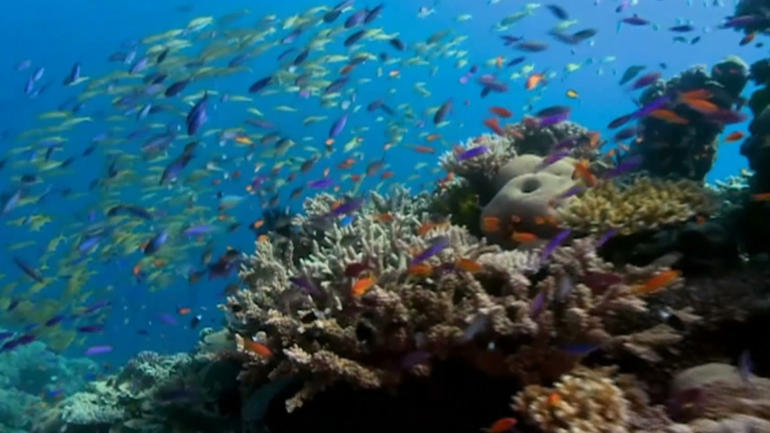The United Nations says one-million species of plants and animals are now facing extinction, but some could provide life-saving treatments for disease.
CGTN’s Giles Gibson reports on a group of scientists working to preserve as many as possible.
Inside a giant freezer on a U.S. military base, these scientists are building a living library of the planet’s biodiversity.
“So this would be a marine macro-organism — a starfish,” points out Dr. Barry O’Keefe.
The National Cancer Institute’s Natural Products Repository is made up of plants, marine organisms, and microbes from every corner of the world. It says approximately 30% of all approved drugs worldwide are derived from natural products.
“For cancer, it’s actually closer to 50%, so a lot of the drugs that help patients currently in the clinic are derived from nature,” said O’Keefe. “And so the National Cancer Institute considers it an important part of what they do, to encourage people to research additional compounds from natural sources that might be useful for cancer research.”
There are more than 230,000 samples in the collection; in the final stage, the extracts are ground up into tiny fractions weighing just a few milligrams. Robots are getting the samples ready to be studied by scientists all over the world.
Instead of having to source their own extracts from countries like Brazil or Japan, scientists can get what they need direct from the repository, and according to Dr. O’Keefe, science has barely scraped the surface in terms of harnessing the potential of the natural world.
That makes the rapid loss of biodiverse regions like Australia’s coral reefs even more damaging.
“We’re losing a lot of that capacity and that biodiversity, which is the key to finding new chemistry and new molecules that can help against these diseases,” said O’Keefe.
Tom Newmark is the co-founder of The Carbon Underground, a non-profit organization that promotes healthy soil as a tool to fight climate change. As our planet’s biodiversity crumbles, he says there’s even more at stake than the loss of scientific progress.
“We will sacrifice some drugs that could be derived from nature, but the loss of nature itself, the impoverishment of Mother Nature, the diminution of beauty and our environment, that’s a very frightening prospect,” said Newmark.
 CGTN America
CGTN America
